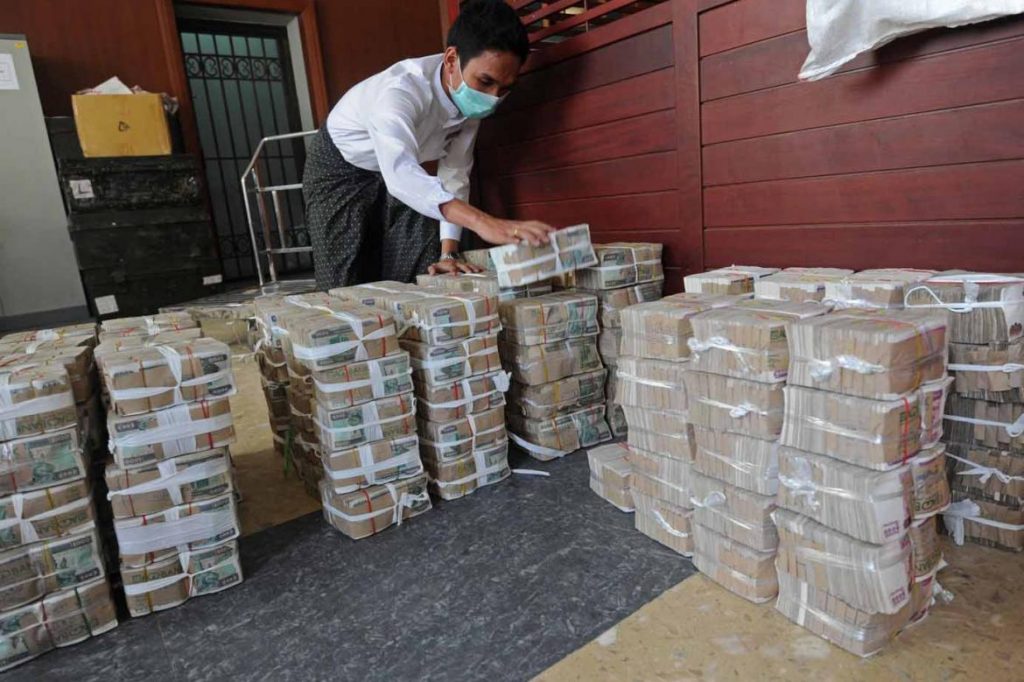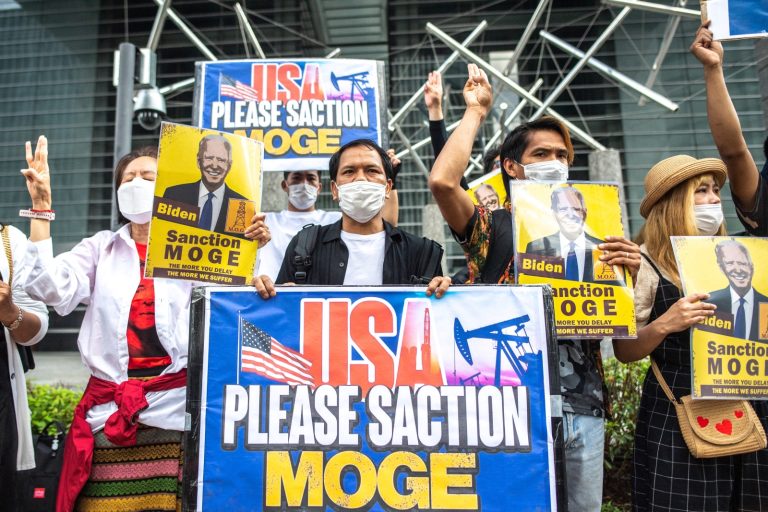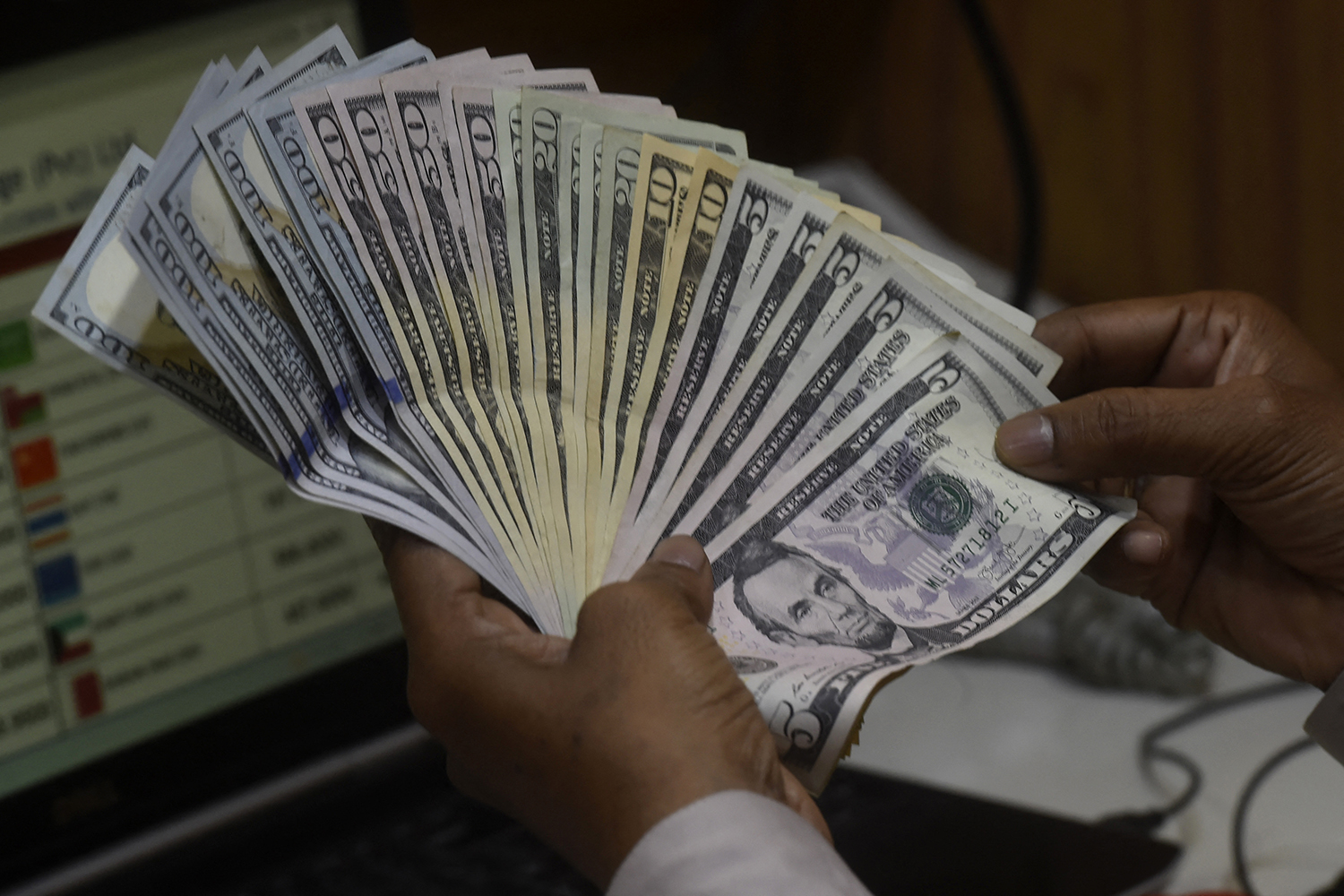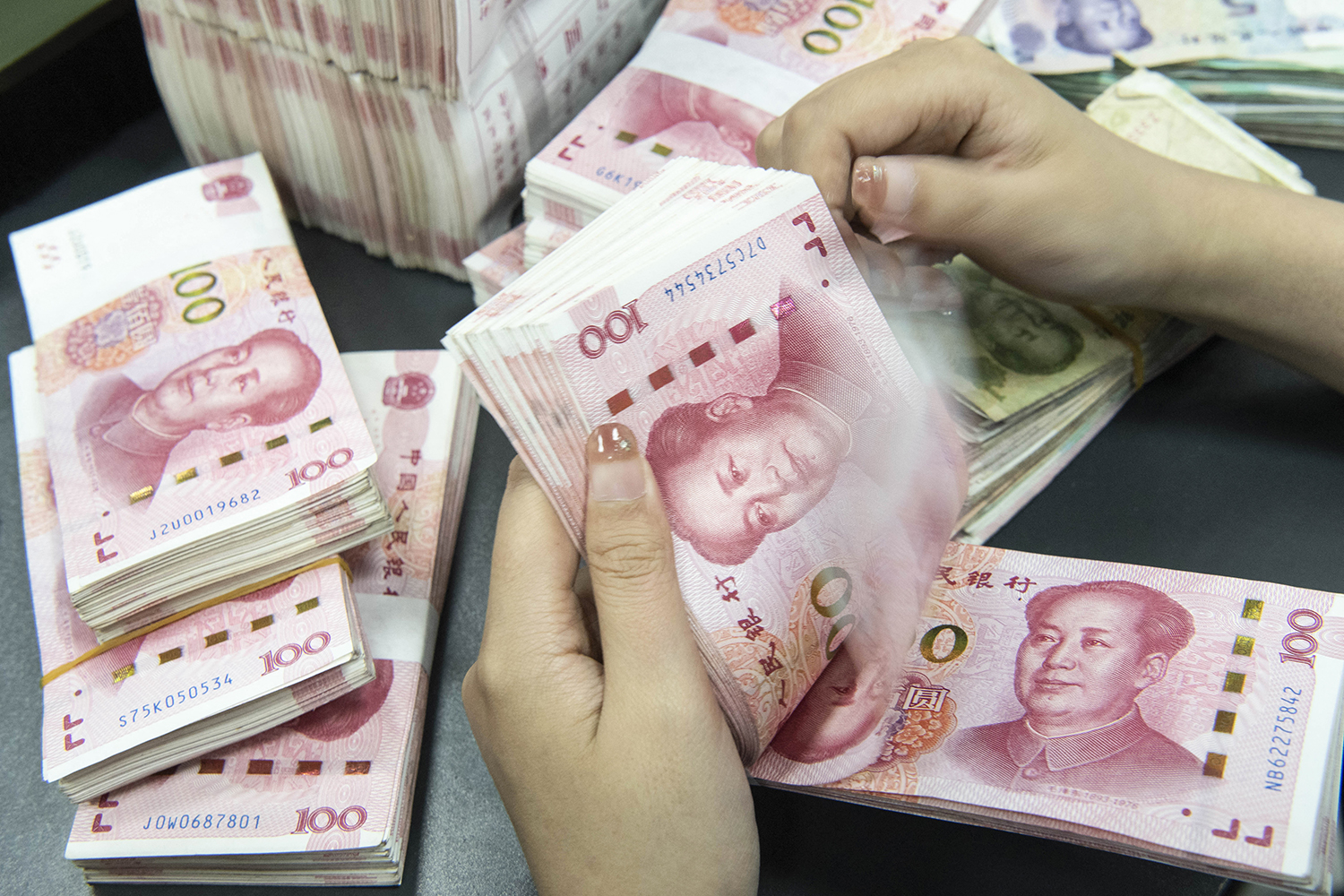Rules introduced in 2012 have seen state-owned enterprises build up cash reserves of K11.45 trillion (US$8.6 billion) in accounts that earn no interest – money that governance experts say would be better spent on infrastructure or social services.
By THOMAS KEAN | FRONTIER
THE GOVERNMENT is throwing away hundreds of millions of dollars a year by requiring state-owned enterprises to keep nearly US$10 billion in profits in non-interest bearing accounts at a state bank, a new report has revealed.
The report, which was published by the Renaissance Institute and Natural Resource Governance Institute, also estimates that state enterprises have lost more than US$2 billion in purchasing power over the past three years because these profits must remain in kyat. Since the start of 2015, the local currency has lost more than 40 percent of its value against the US dollar, sliding from an exchange rate of about K1,000 to more than K1,400.
“In US dollars in a normal savings bank in the West, it would accumulate one or two percent [interest a year]. When you have that much money, that’s a significant loss,” said Mr Andrew Bauer, a consultant with NRGI who co-authored the report.
“But I think a bigger issue is the opportunity cost. How else could that money be spent? And most importantly, should it be spent in an accountable, transparent way as approved by parliament?
Support more independent journalism like this. Sign up to be a Frontier member.
“What we’re saying is that money … could be going to other ministries or other really important items like electricity, sanitation – things that help people’s lives get better.”
The report, State-owned Economic Enterprise Reform in Myanmar: The Case of Natural Resource Enterprises, calls for sweeping changes of the state-owned enterprises, including improved accountability and oversight.
“The underlying issue is that the state-owned enterprises in Myanmar have been performing poorly by international standards,” said Bauer. “They are not efficient. Costs are in some cases inexplicably high. They collect a lot less revenue than they should … On most measurable indicators they are underperforming.”
The numbers in the report, launched on Tuesday by Minister for Planning and Finance U Soe Win, are startling. It reveals that state enterprises, particularly those in the natural resources sector, had accumulated K11.45 trillion (US$8.6 billion) to January 2017 in so-called “Other Accounts”, which were created under revenue retention rules introduced in 2012 by the U Thein Sein government.
These rules require state-owned enterprises to keep 55 percent of their profit in an “Other Account” at Myanmar Economic Bank that accrues no interest. While the rules were apparently introduced to make the enterprises financially independent, Bauer said they had possibly made the situation worse.
Because the policy does not take into account the spending needs of the enterprise, it has led to huge accumulations at the most profitable entities. Myanma Oil and Gas Enterprise, for example, holds K5.4 billion in its Other Account, it still receives funds from the national budget for some expenses.
“Putting money from a state-owned enterprise into a savings account does not make it perform better,” Bauer said. “SOEs should have been subject to better oversight, more transparency, and given the tools that they need to succeed.”
Instead, some enterprises – such as Myanmar Port Authority, Myanmar National Airlines and Yangon Electricity Supply Corporation – have gone in the opposite direction, leaving their liabilities with the government but taking billions of dollars of assets off budget.
“There’s a lot less oversight over their activities than there was before, which means that managers can do a lot within these enterprises that nobody knows about.”
The authors of the report say the amount that enterprises retain or be allocated from the budget should depend on their needs, and the rest be transferred to the union government to be spent on social services and infrastructure.
“Excess savings could be invested in interest-accruing foreign assets. Account information could be published online. And idle Other Account balances could be reallocated to more productive uses,” the authors wrote.
They also recommend longer-term reforms to improve governance and efficiency at state-owned enterprises, including improving the legal framework governing their activities; requiring they articulate strategic objectives and performance targets; strengthening oversight; and improving disclosure of financial information and activities.
“Taken together, these reforms could generate trillions of kyat in new resources to finance Myanmar’s development agenda. They would also help the government establish a legal and administrative structure for deciding which SEEs to keep within the budget framework, which to corporatize or privatize, and which to liquidate,” they write.
“Finally, by helping SEEs generate more revenue, lower costs and upgrade service delivery through better subcontracting and management decisionmaking, our proposals would make SEEs more efficient – allowing them to ‘stand on their own two feet’.”







